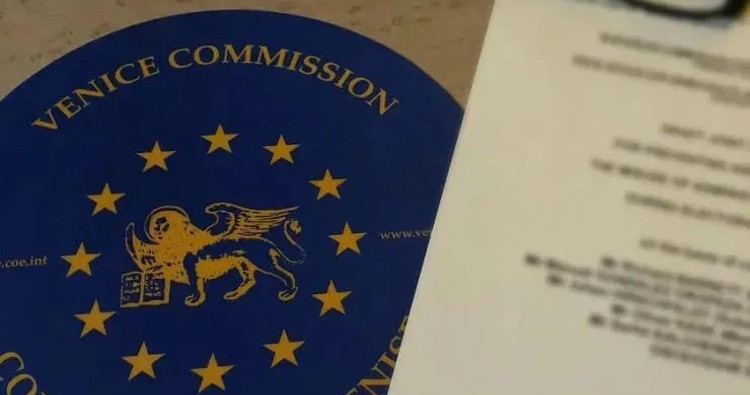Venice Commission “strongly recommends” repealing transparency law in its current form

As the Venice Commission explained, “the law has the objective effect of risking the stigmatising, silencing and eventually elimination” of associations and media which receive even a low part of their funds from abroad. Photo via IPN
The Venice Commission of the Council of Europe “strongly recommends” the Georgian Government repealing the domestic law on transparency of foreign influence in its current form, as its “fundamental flaws” would involve “significant negative consequences” for the freedoms of association and expression, the right to privacy, the right to participate in public affairs, as well as the prohibition of discrimination.
In its opinion over the controversial law adopted by the Georgian Parliament last week against the backdrop of ongoing public protests and criticism from Georgia’s foreign partner states, the Commission on Tuesday “strongly” recommended the Georgian authorities to “abandon” the special regime of registration, reporting and public disclosure requirements for civil society organisations, online media and broadcasters receiving foreign support, including the administrative sanctions.
The legislative piece calls for the registration of non-commercial legal entities and media outlets in the country as “pursuing the interests of a foreign power” if they derive more than 20 percent of their funding from abroad.
While the existing Georgian legislation already contains provisions requiring organisations concerned by the Law to register and report, including on their sources of funding, no convincing explanation has been given on why the existing obligations would be insufficient for the purpose of ensuring transparency”, the Venice Commission stressed in its assessment.
It recommended that Georgian authorities should consider amending the existing laws in compliance with European and international standards “in case the existing provisions proved insufficient”.
The Commission concluded that the restrictions set by the Georgian law to the rights to freedom of expression, freedom of association and privacy “do not meet the requirements of legality, legitimacy, necessity in a democratic society and proportionality”.
The combined impact of burdensome registration and reporting requirements [...] along with severe administrative fines they may incur, constant surveillance, will with no doubt complicate and threaten the effective operation and existence of the organisations concerned”, the opinion reads.
As the Venice Commission explained, “the law has the objective effect of risking the stigmatising, silencing and eventually elimination” of associations and media which receive even a low part of their funds from abroad.
The Venice Commission regrets at the outset that this law, which is human-rights sensitive but is also highly controversial in Georgian society, as is demonstrated by the massive reactions in the country, was adopted in a procedure which left no space for genuine discussion and meaningful consultation, in open disregard for the concerns of large parts of the Georgian people”, the Commission emphasised, pointing out that “this manner of proceeding does not meet the European requirements of democratic law-making”.
It expressed regret that the Georgian Parliament did not wait for its opinion before adopting the law, despite the calls by the President of the Parliamentary Assembly and by the Secretary General of the Council of Europe.
 Tweet
Tweet  Share
Share